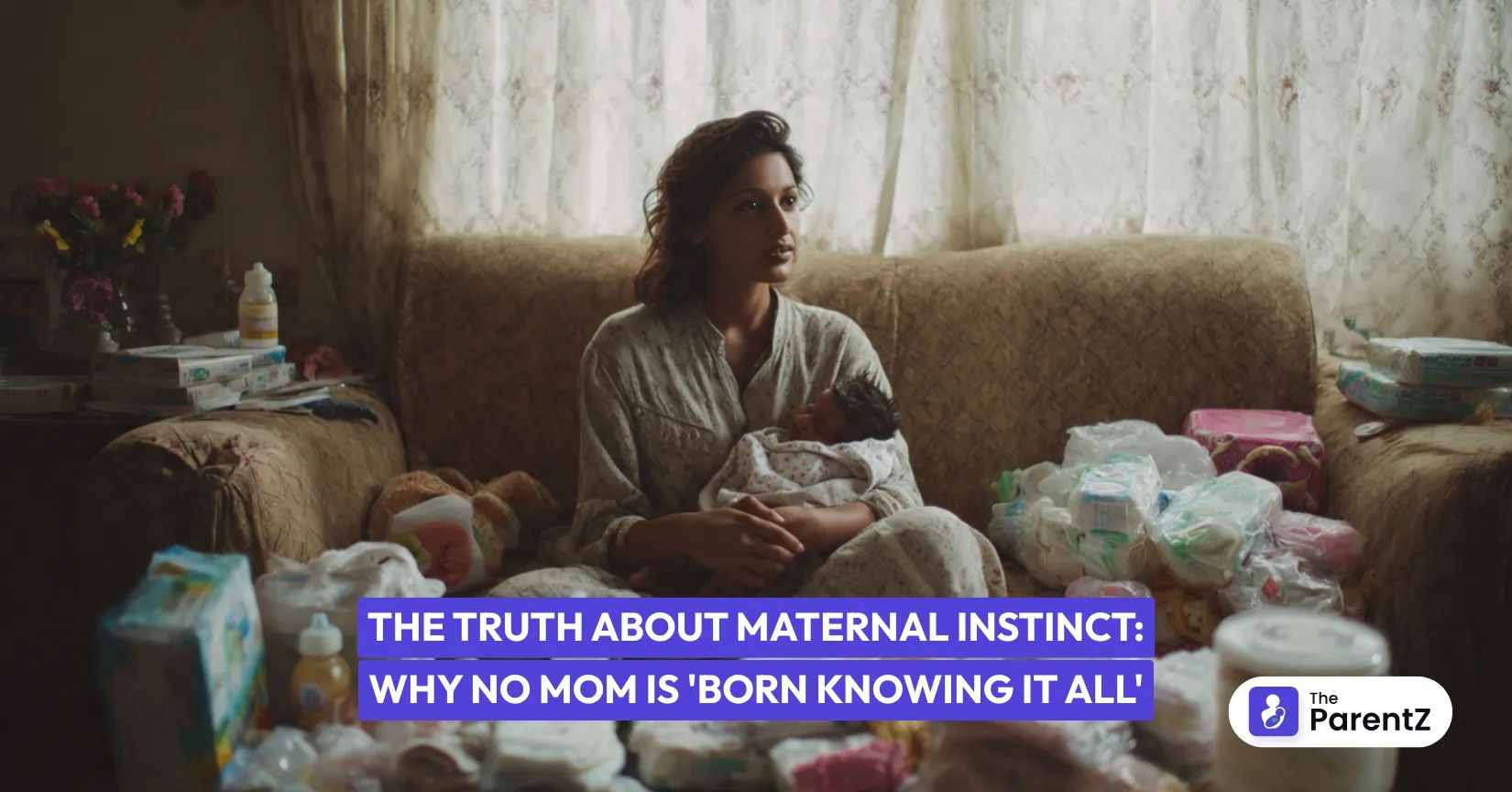“Motherhood will come naturally to you.”
If you’re a mom, chances are you’ve heard this sentence more times than you can count. From relatives, from neighbors, even from TV shows. The image of the “natural mom” is everywhere; the mother who instantly knows what her baby needs, who never feels tired, who somehow balances breastfeeding, cooking, cleaning, and smiling all at once.
But here’s the truth that almost no one says out loud: maternal instinct is not some magical superpower every woman is born with. For some moms, caring for a baby feels intuitive. For others, it feels overwhelming, confusing, and even unnatural at first. And that doesn’t make them less of a mom.
So let’s take a closer look at this myth of the “natural mom,” how it harms mothers, and why it’s time to rewrite the story.
What Society Means by a "Natural Mom"
When people talk about a “natural mom,” they often mean a mother who:
- Instinctively knows when her baby is hungry, sleepy, or unwell.
- Breastfeeds with ease and loves every second of it.
- Who never loses patience and always puts her children first.
- Runs the household smoothly while also staying calm, cheerful, and glowing.
It sounds amazing, but also unrealistic. Life doesn’t work like this. Even experienced moms have days when they don’t know what their baby’s cries mean or when they’re too exhausted to think clearly. Yet, society continues to pressure women with this shiny, perfect ideal.
And when mothers can’t live up to this image, the guilt hits hard.
The Toxic Side of the "Natural Mom" Idea
The problem with this myth is that it sets mothers up for impossible standards. It whispers:
- “If you struggle, you’re not a good mom.”
- “If you don’t enjoy every moment, you don’t love your child enough.”
- “If it doesn’t come naturally, something is wrong with you.”
This toxic thinking pushes women into silence. Moms feel ashamed to admit that they don’t enjoy night feeds, or that they dread diaper duty, or that sometimes, despite deep love, they want a break. The pressure adds to anxiety and postpartum stress instead of supporting women during one of the most demanding times in their lives.
What About the Moms Who Don’t Feel "Natural"?
Let’s say this loud and clear: not every mom feels like a “natural mom.” Some women hold their baby for the first time and feel an instant connection. Others take weeks, or even months, to bond. Both experiences are valid.
Many moms find baby care confusing at first. Is the baby crying because of hunger, gas, or just wanting to be held? Sometimes even pediatricians get it wrong, so why do we expect every mother to just “know it”?
And then there are moms battling postpartum depression or anxiety. For them, the “maternal instinct” myth hurts even more. Society often makes them feel broken when, in reality, they just need understanding, compassion, and sometimes professional help.
Why This Thinking Is Backward
The idea that women are born with an inbuilt “mother switch” is old-fashioned and rooted in stereotypes. It assumes women exist only to nurture, while men are seen as “helpers.” But in reality, parenting is a skill like cooking or driving that improves with experience, patience, and support.
If men can learn diaper duty, sleep training, and managing tantrums, why can’t women admit they, too, are learning? Expecting mothers to “just know” keeps fathers from stepping up fully, which is unfair to both parents.
What Real Motherhood Looks Like
Moms know it doesn’t always look like the movies.
- Some moms thrive at breastfeeding, others switch to formula.
- Some love the newborn stage, others connect more with their kids as they grow older.
- Some have spotless homes, others live with toys scattered across the living room floor.
And here’s the beautiful part: all of them are good moms, because being a good mom is about showing love and showing up and not about fitting into an outdated image.
How We Should Rethink Maternal Instinct
Instead of treating “maternal instinct” as a magical gift, let’s call it what it often is: learning, adjusting, and growing. When a mom figures out her baby’s routine, that’s not instinct; it’s practice and observation. When she feels overwhelmed yet keeps going, that’s not nature; it’s resilience.
The more we normalize that motherhood can be messy and confusing, the more mothers everywhere can breathe easier.
Conclusion
The myth of the “natural mom” needs to go. Not because maternal instincts don’t exist, but because believing they are the only measure of good parenting is damaging.
Every mom’s journey looks different. Some start strong, others find their balance along the way. Some love baby cuddles, others shine when their kids start talking, learning, and growing. All of it counts. All of it matters.
So if you’ve ever felt like you’re not a “natural mom,” let this be your reminder: you don’t need to be. You just need to be your kind of mom. And that is more than enough.





Be the first one to comment on this story.